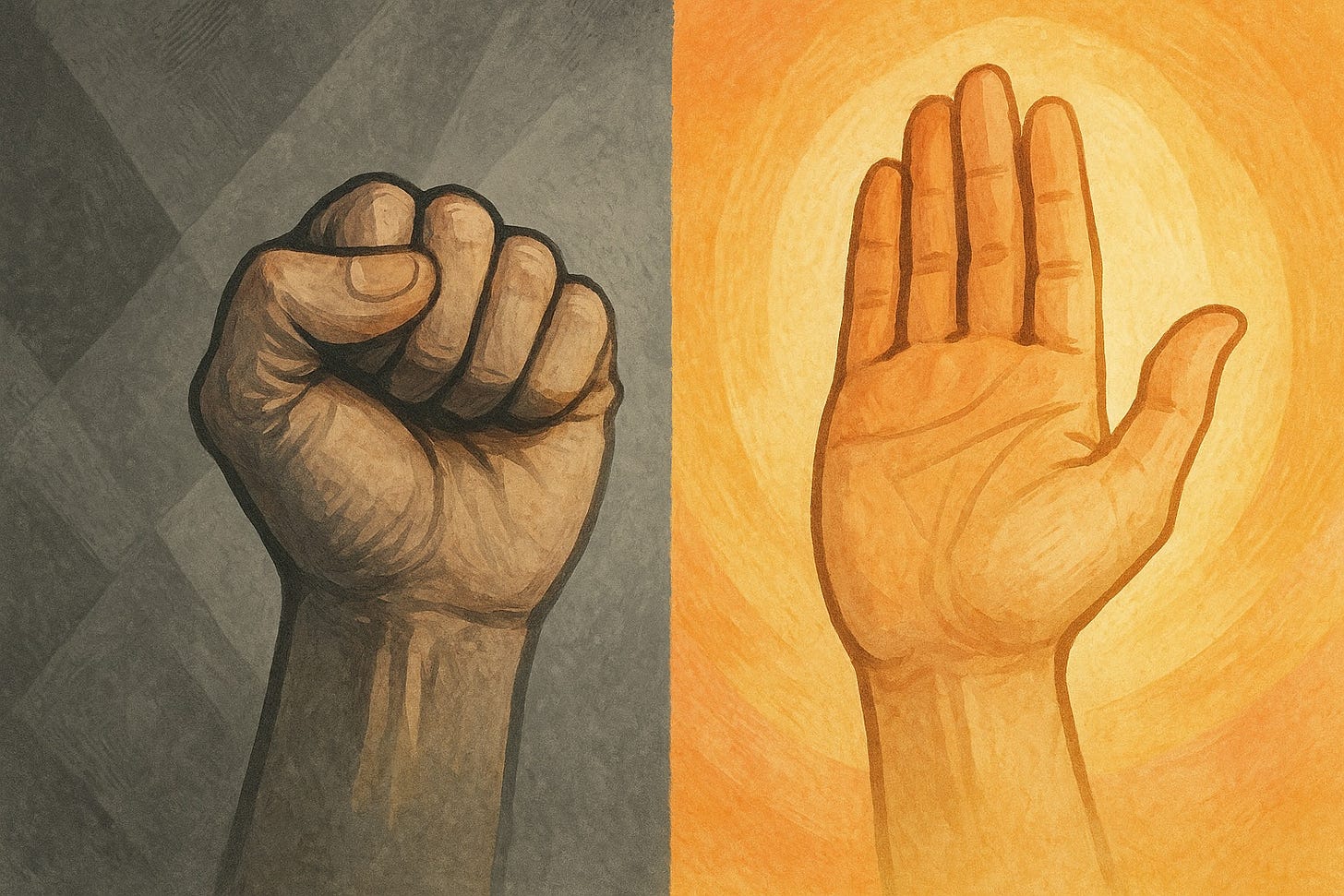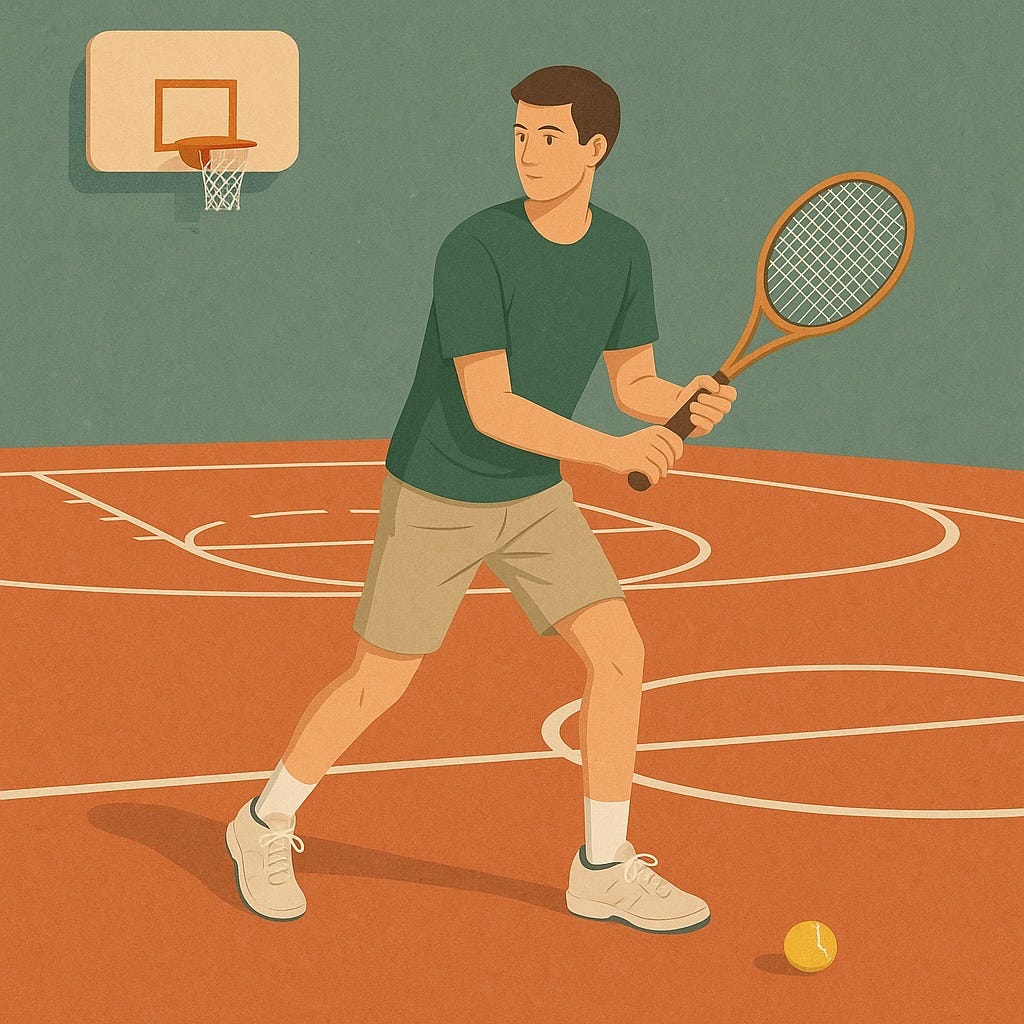Tennis is played on a tennis court. Basketball is played on a basketball court. Each court lends itself to a specific game, and each game belongs to its own playground.
This is true for many things. Scuba diving belongs to the ocean. Hang gliding belongs to the air. Mango trees grow in tropical climates, and saguaro cacti grow in the Sonoran Desert. Each activity belongs to the terrain that allows it to thrive.
Judgment, if you consider it an activity, is no different. It’s played on a specific kind of internal playground. Without that playground, it cannot be played.
Now imagine that a tennis court doesn’t just allow you to play—it compels you to. This makes the playground something active, something that pulls you into playing the game. You don’t choose the game—the playground chooses it for you.
We think we initiate judgment, but certain conditions—certain playgrounds—actually draw us to it. Externally, we believe we initiate the game: we go to the tennis court because we want to play tennis. Internally, it’s often reversed: we find ourselves on a court and the game begins. The terrain shapes the behavior while leaving us the illusion of choice.
You see this in life. You visit your family and old behaviors return. You walk your old neighborhood and feel like a child again. You practice compassion, then enter a place tied to past hurt and feel anger. Each terrain pulls you into a different state of being, often beyond your ability to resist.
We think we go to the bar because we want to drink. In reality, the bar compels us. The TV and couch compel us to watch and snack. The workplace compels us to stress. The family dinner table revives old habits. We believe we control the game, but often we’re playing the one assigned by our terrain.
Judgment is no different. We think, “I am judging—myself, that person, those people.” We believe it comes from us, but the source is hidden.
Make a fist—right now, with your dominant hand. Feel how it lends itself to saying “no.” Open your hand and relax it. Feel how it lends itself to saying “yes.” Try to reverse it—make a fist and say “yes,” or open your hand and say “no.” There is a contradiction there. The contraction resists the “yes.” The openness resists the “no.”
The playground of “no” is a closed fist—contraction, denial of possibility. The playground of “yes” is an open hand—relaxation, allowing possibility. Judgment is a “no,” a closing of possibility. To judge, you must contract, because contraction is the playground where judgment is played.
You might think, “I contract because I judge,” but in reality, you judge because you contract. Contraction is the playground; judgment is the game. Outside the playground of contraction, judgment loses its footing.
The world is full of terrains that invite contraction—politics, fundamentalism, rivalry. Create contraction in a child, and the adult will carry an inner court where self-judgment thrives. Thoughts are not the root—they are the game. To change the game, change the playground.
The playground, however, can’t be mapped in the mind. The body maps it. In the mind, you notice the thoughts—the game. In the body, you notice the contraction—the playground.
Noticing your own playground is not easy. Often, we need another person to help. A skilled other can notice what we cannot and introduce a new playground. Over time, we can internalize a terrain that does not enforce judgment but allows for a different game.
Sometimes that new playground is relational. We meet someone whose internal terrain invites us into a way of being where judgment doesn’t thrive. Through that relationship, we experience an alternative court and learn its rules. This is why guidance, partnerships, and friendships can be transformative: the terrain of another can reveal and develop terrains within ourselves we didn’t know existed.
Our internal courts are often invisible to us, like water to a fish. When the only water the fish knows is contraction, judgment becomes the go-to activity. Trying to address judgment while remaining on the same playground is like trying to play tennis on a basketball court—it doesn’t work. You can’t play a different game on the same playground.
The goal is not to will ourselves to stop judging. The goal is to recognize the playground—and then discover other waters, other terrains, where we will be compelled to play a different game.
This is transformation—not the changing of the game, but the changing of the internal playground.



